From the higher ambitions established in Glasgow, global leaders are now shifting their focus to implementation as they convene in Sharm El Sheikh, Egypt at the 2022 UN climate change negotiations (COP27) to decide on the pathways to a low-emissions, climate-resilient, and sustainable future.
The urgency of addressing the climate crisis increases with every elapsing year. Despite 26 previous negotiations among Parties to the United Nations Framework Convention on Climate Change (UNFCCC) and increasing demands for adequate and effective solutions, the familiar systemic economic, political, social, and environmental issues at the global and national scales have persisted to hinder meaningful ecological action. Along with Pope Francis, seven years after the encyclical Laudato Si’ and the Paris Agreement, we can still sadly say that “With regard to climate change, the advances have been regrettably few” (LS 169).
The divide between developed states and vulnerable countries, largely fueled by the former’s refusal to fully own up to its historical responsibility of causing the ecological crisis, slows down the implementation of adaptation and mitigation measures. This influences the worsening poverty, injustices, and inequalities seen across and within nations, which has been exacerbated by the lingering effects of the COVID-19 pandemic. The cries of the earth and the poor grow louder, with each passing climate-related disaster showcasing how “the gravest effects of all attacks on the environment are suffered by the poorest” (Laudato Si’, 26).
Delivering on the goals of the Paris Agreement and preventing further ecological degradation and suffering of billions of 1vulnerable peoples is a moral responsibility of the Parties that cannot be overlooked. The implementation of proposed solutions must be done not for the sake of only achieving geo-political targets and receiving financial and technological benefits, but for driving the radical, transformative change necessary to create an alternative culture for an ecological citizenship capable of genuine sustainability, in which no one is left behind.
We, the representatives from different Catholic institutions and communities around the world, present our support to the Holy See as it attends its first COP as an official Party to the UNFCCC. We emphasize that any implementation of climate solutions must be anchored on the following three pillars: justice, equity, and solidarity.2
These principles are well-embedded within the Convention text and the Paris Agreement, both of which specifically highlight the concept of “common but differentiated responsibilities and respective capacities” and “polluter pays”. It must be emphasized that developed nations should not avoid being held accountable for causing the climate crisis and the injustices it has caused on both human communities and the environment. Implementing solutions must respect the rights of all persons to a healthful environment and sustainable living.
Furthermore, both the underlying complexities of climate-related issues and the natural interconnectedness among human beings and our environment call us to protect the Earth’s climate, the ocean and the rich biodiversity present in the therein and tropical forests, which at the same time, help preserve the earth’s climate below the dangerous limits of global warming. The Earth with its goods belongs to everyone in its vast complexity.3 The common goods cannot be exploited or abused for the partial benefit of a few because it increases existing inequalities and injustices.
There is a gap between the science-based climate urgency, the poverty and misery of a large part of humanity, and the technocratic discussion at climate summits, which is also dominated by strong economic interests. There is a need to curb the cultural addiction to oil and coal and change lifestyles. Every global citizen should learn to Live Well, in harmony with the Earth, our mother and sister, as a solution to the climate crisis. Today more than ever, there is an urgent need to listen to the voices of ancestral and millenary societies, and to their heirs, the indigenous peoples, as a structural way out of the climate crisis, to strengthen the care for the life of our mother and sister earth. It should be recognized that “given the complexity of the ecological crisis and its multiple causes, we need to realize that the solutions will not emerge from just one way of interpreting and transforming reality” (LS 63).
Within this context, we present the following key calls and recommendations in our appeal to for more immediate, inclusive, and impactful climate actions at COP27 and beyond to take care of our Common Home:
● The establishment of loss and damage (L&D) finance as a true pillar for climate action must be formalized during the Sharm El Sheikh negotiations. All modes of such finance must be designed so that they do not further prolong injustices, bring on more economic and non-economic L&D, and add burden to the most vulnerable countries and communities that worsen existing systemic issues. Nor should they be simply reallocated from existing adaptation and mitigation finance but new climate financing modes, that would be an act by developed nations to escape their moral obligation and responsibility as the ones who caused the climate crisis.
● The just transition away from fossil fuels towards renewable energy needs to be enacted without delay. Climate change mitigation must consider disinvestment and the rapid phasing-out of fossil fuels, against carbon colonialism, together with the development of alternative energies and financing for the just transition of the countries most in need. Parties must avoid the pitfall of looking at natural gas as a transition fuel, as its expanded use would prevent our world from limiting global warming and bring about more L&D, especially to the most vulnerable peoples. Truly, nations must build on the gains from the negotiations in Glasgow and establish targets and timelines for phasing out fossil fuels energy sources and enhancing renewable energy production, which is key to establishing a new economic paradigm that is different from the current models heavily dependent on fossil fuels in order to tackle the climate change crisis. Since Renewable energies are necessary for the energy transition, financing should also be targeted to new opportunities and benefits of renewable energy at the small community level.4
● Current climate financing for co-beneficial, community-based, and ecosystem-based approaches must be enhanced to reduce related risks and vulnerabilities. These approaches must also uphold essential rights to food, livelihoods, safety, and shelter that would also enable sustainable living. Financing must be well-defined to account for all flows and sources, applied with ethical considerations and good governance. It must also be readily accessible to the most vulnerable peoples (e.g., women, youth, indigenous peoples), who need the support the most to successfully address climate change impacts.
● Existing mechanisms and spaces for meaningful inclusive participation in climate policymaking must be enhanced at the global and national levels. The interlinkages between human rights and climate must be reflected and respected within the resulting COP27 decision text, especially on the protection of climate and environmental activists, Parties and UNFCCC bodies must implement measures to resolve issues preventing the active engagement of civil society and other non-government stakeholders during the negotiations and beyond. The inclusion of the youth in climate policy making is crucial in creating intergenerational continuity needed to fully realize adaptation and mitigation solutions that also enable the pursuit of genuine sustainable development. As a Party to the UNFCCC and the Paris Agreement, the Holy See should consider including more climate negotiators within the global Catholic community into its delegation to represent its interests and provide an even stronger moral voice for future Conferences of Parties.
Climate science states that the span of opportunity ahead of us to act is short. There is no time to waste in making the necessary political decisions. We morally support the Parties in achieving global policies that guarantee the early phasing-out of fossil fuels, support a just energy transition, driven by locally accessible clean energy, and establish new climate financing modes for loss and damage to achieve a future of integral and sustainable development for all.
Signed,
Living Laudato Si’ Philippines
Carmelite NGO
Laudato Si’ Movement
Franciscans International / Order of Friars Minor, Justice Peace and Integrity of Creation (OFM-JPIC)
VIVAT International
Mercy International Association
Coopération Internationale pour le Développement et la Solidarité (CIDSE) International Young Catholic Students (IYCS-JECI)
Caritas Oceania
Dominican Leadership Conference
Manila Observatory
Catholic Youth Network for Environmental Sustainability in Africa

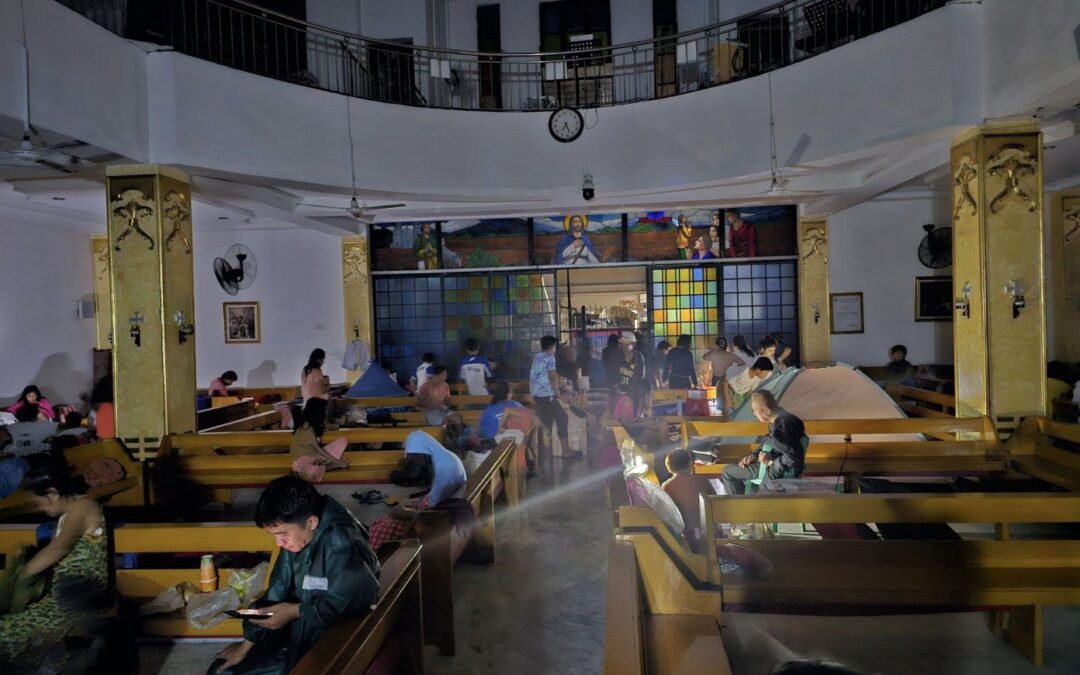
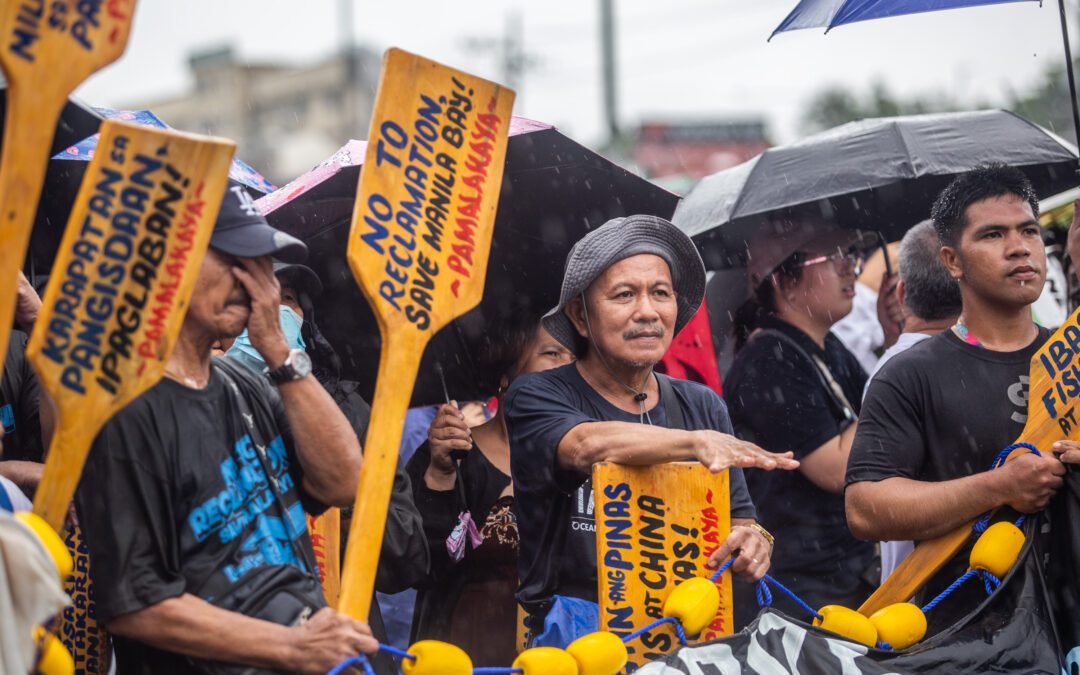
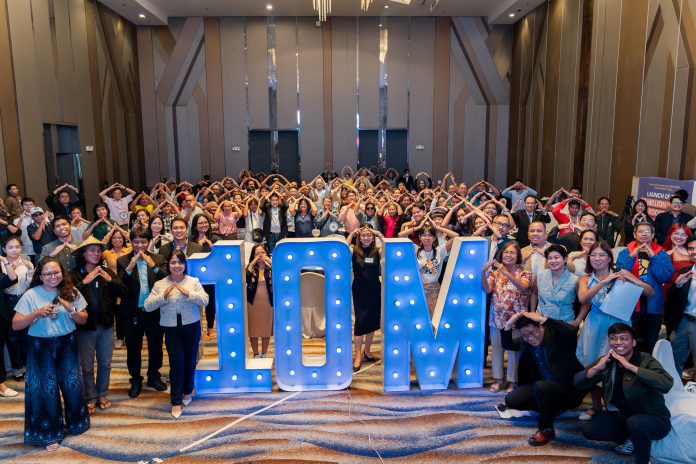
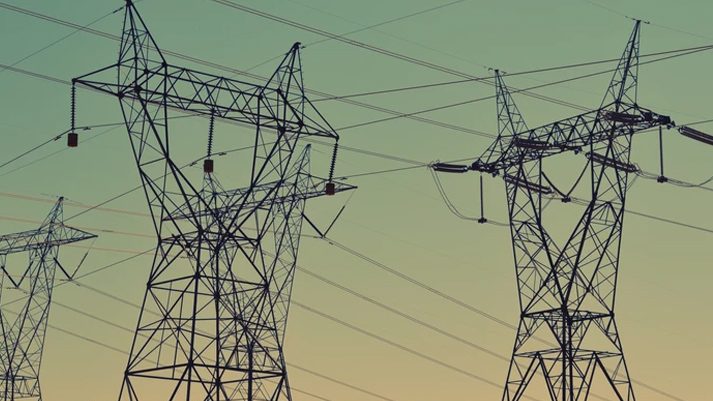
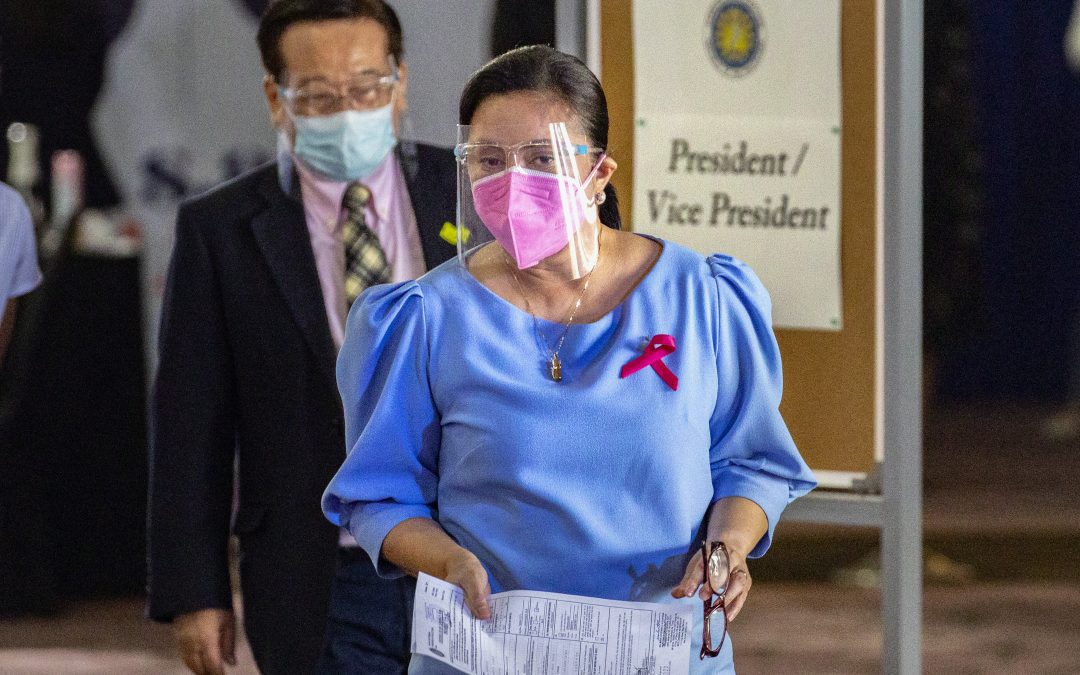
0 Comments